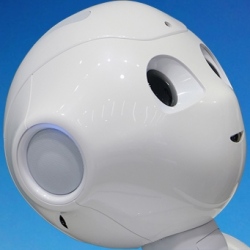
Artificial intelligence should be used to provide children with one-to-one tutoring to improve their learning and monitor their well-being, academics have argued. One-to-one tutoring has long been thought the most-effective approach to teaching but would be too expensive to provide for all students.
However, in a paper, academics from University College London’s Knowledge Lab argue that AI systems could simulate human one-to-one tutoring by delivering learning activities tailored to a student’s needs and providing targeted and timely feedback, all without an individual teacher present.
Instead of being examined in traditional ways, children could be assessed in a more complete manner by collecting data about their performance over a long period, providing employers and educational institutions with a richer picture of their abilities.
Proposals to use AI have been controversial. Professor Stephen Hawking and other leading scientists have warned of the dangers of it becoming “too clever”, and there are concerns about data security and privacy. Some teachers also fear their role could be diminished by this technology, or that it could be used as a “classroom spy” to monitor their performance. But the report’s authors believe there are huge potential benefits, and they argue it is essential the teaching profession is involved from the start.
The report says: “We are in no doubt that teachers need to be central agents in the next phase of Artificial Intelligence in Education (AIEd). In one sense this is obvious, it is teachers who will be the orchestrators of when, and how, to use these AIEd tools. In turn, the AIEd tools, and the data-driven insights that these tools provide, will empower teachers to decide how best to marshal the various resources at their disposal.”
It adds: “The increasing use of AIEd systems will enable the collection of mass data about which teaching and learning practices work best. This data will enable us to track learner progress against different teaching approaches and, in turn, will allow us to develop a dynamic catalogue of the best teaching practices suited to the development of different skills and capabilities, in particular the 21st century skills, across a range of environments.”
AI should also be used to tackle the achievement gap between the poorest children and their wealthier peers by helping low-income parents with parenting even before their offspring start school.
The report says: “Low-income parents may also have had limited education opportunities, meaning they may face serious challenges in providing at-home learning support to their children.
“AIEd systems can provide tailored support to parents in the same way that they can for teachers and students, improving education and outcomes for both parents and their children. Imagine, for example, providing parents with AIEd assistants that could advise them about strategies for talking to their child, sharing songs, and enjoying books. This could enable all parents to provide the right sort of support in those all-important early years.”
